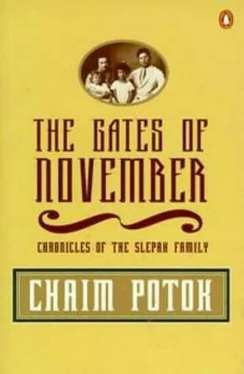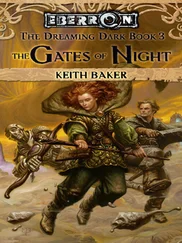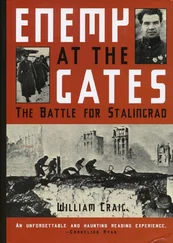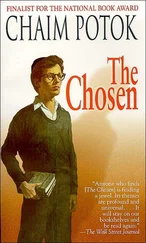In the meantime they were saying good-bye to all their relatives. They visited the graves of Masha’s father and Volodya’s mother. And stood in silence awhile before the grave of Solomon Slepak. They sold some of their furniture and gave away many of their possessions to relatives and to fellow refuseniks. About 150 people showed up at the farewell party in the apartment, among them Richard Schifter, aide to Secretary of State George Shultz.
Once again, by sheerest chance, in the apartment that evening was Sister Gloria Coleman, the Catholic nun from the United States who had become involved in the Soviet Jewry movement. Unaware that they had received permission to leave, she came with others to visit the Slepaks and stumbled upon the celebration. She recalls a crowded apartment filled with laughter and joy and remembers seeing Volodya, “an amazing-looking man, wonderfully well-looking, considering what he had been through, sitting there amid the reverence and respect being shown him by the refuseniks and the press. He was effusive. The whole room radiated with excitement, elation.” She went over to Volodya and introduced herself. He took her hand in both of his. She was warmed by the way he immediately engaged her, brought her into the celebration, indeed by the way the refuseniks made all who were there, including the press, part of the evening’s happiness. They did not play to the press; they involved the press as people in the drama of their lives.
The day before their departure Volodya and Masha brought their baggage to customs in the airport. Seven suitcases. They waited five hours and then stood watching as the customs agents picked everything apart. It was four in the morning when the agents were done. They had, they told Masha and Volodya, no blank forms for the baggage receipts. “But don’t worry, when you come tomorrow to check in, the receipts will be there for you.”
About two dozen people-relatives and very close friends-were at the airport to see them off. It was late afternoon of October 25, 1987. In an odd juncture of events, their son Sanya had left the Soviet Union precisely ten years before. The clerk at the counter who went through their tickets and documents could not find the baggage receipts; they would be unable to claim their baggage. To the devil with all the baggage, thought Masha, frantic. Let’s just get out of this place! The chronicles record that it was a wet, cloudy day, the air filled with a mixture of snow and rain. The Soviet aircraft was a TU-154, and the flight number was SU-263. It departed for Vienna at 8:15 p.m.
During the flight an attendant came over to Masha and Volodya and handed them their baggage receipts. They had been found on the floor of the aircraft, she said. The final knife thrust of the KGB, thought Masha.
When she and Volodya descended the stairway and stepped onto the tarmac in the Vienna airport, they were met by Ambassador Max Kampelman, head of the American delegation to the Soviet-American Disarmament Conference in Vienna. Inside the terminal waited Sanya; Senator John and Teresa Heinz of Pennsylvania; the American ambassador to Austria; Marion Wiesel, wife of Elie Wiesel; a representative of the Jewish Agency, which was responsible for the settlement of Soviet immigrants in Israel; and the Slepaks’ close friends Kirill and Irina Khenkin, who had come from Munich, where they worked for Radio Liberty, one of the stations Volodya used to bring in on his radio during his years in the forests outside Moscow, on camping trips in the Ukraine, in the apartment on Gorky Street, and as he navigated the hospital elevator through the waves of noise thrown up by the Kremlin against the outside world.
There were many journalists in the terminal. The press conference lasted about twenty minutes. As soon as it was over, the American ambassador asked Masha and Volodya to join him at his residence for dinner. They could spend the night there, in a room already prepared for them.
The next day Masha and Volodya and Sanya flew to Israel in a Lear-jet chartered by Senator Heinz, Elie Wiesel, and Patti and John Thompson, a Christian couple from Nashville. When the pilot announced that they were above Israeli waters, Volodya opened a bottle of champagne. They gazed out the windows at the blue glitter of the sea, and Masha saw the beaches of Tel Aviv below. The jet landed, and Masha and Volodya came out the door and down the stairs and stepped onto the soil of Israel. It was a warm, sunny October day. A huge crowd of relatives, friends, and reporters greeted them in the terminal. Leonid, involved at the time in a controversy with Israeli authorities over his passport and not wanting to touch down in Israel lest he be obliged to serve in the army, was not present. Volodya opened the press conference. “Finally we are here…”
The chronicles record that Masha was wearing her amulet.
Three days later they celebrated Volodya’s sixtieth birthday in the Jerusalem residence of Chaim Herzog, president of Israel. From the residence Volodya telephoned Moscow and talked with Alexander Lerner, who, some weeks later, received his exit visa and went to Israel. When the festivities at the residence of the president ended, Volodya and Masha made their way to a more private party arranged by some of their closest friends, immigrants from the Soviet Union, one of whom owned the Jerusalem discotheque where the second party went on and on until the very early hours of the morning.
The chronicles further record that Volodya and Masha flew to the United States that November and were greeted at Kennedy Airport by the five grandchildren they had never seen; three of the children were Leo’s, and two Sanya’s. They then traveled about for two months, pleading the cause of other refuseniks and raising funds for the Soviet Jewry movement. They were looked upon as valiant figures and listened to with profound regard as they spoke about the thousands of refuseniks still remaining in the USSR, their fate uncertain even in the days of perestroika and glasnost. Not until the dissolution of Communist power in 1991 would the word “refusenik” begin to fade from the worlds agenda.
Finally the chronicles tell us that in June 1988 Masha and Volodya set out with a number of other refuseniks on a goodwill and fund-raising mission to London, Los Angeles, Australia, and New Zealand under the auspices of the World Jewish Congress. In Australia, at the request of Isi Liebler, then vice-president of the congress, they all were to meet and express their gratitude to Prime Minister Bob Hawke, one of the most noted figures in the struggle for Soviet Jewry.
During the night that Masha and Volodya stayed in Los Angeles, someone entered their second-floor hotel room through the balcony, whose doors they had neglected to lock, and stole every object of value that lay in view: their watches and camera, Volodya’s wallet and credit cards, and all of Masha’s jewelry, including the amulet. Fortunately they had placed their passports, traveler’s checks, and airline tickets in a suitcase. They flew on to Australia for appearances before admiring audiences and the meeting with the prime minister. The mission over, they returned to Israel.
A few months later Volodya and Masha found suitable jobs in Israel.
Their sons were by then permanently settled in the United States.
Here the chronicles come to an end.
Today, as Volodya approaches his seventieth birthday, his hair is entirely gray, his beard short and snowy white, growing in two roundish clumps from his smooth pink cheeks. He carries the same paunch, which he is still trying to lose, and his voice, somewhat huskier than before, remains deep and resonant and exuberant. And Masha is smooth-faced, plump, her intelligent eyes bright behind their thick glasses, her short, straight hair russet-colored, youthful, her voice lilting, musical. They seem to hide their scars well, though I am told that Masha has moments of dark moods, and that Volodya’s boisterousness will suddenly evaporate when certain people and experiences come up in conversation.
Читать дальше












